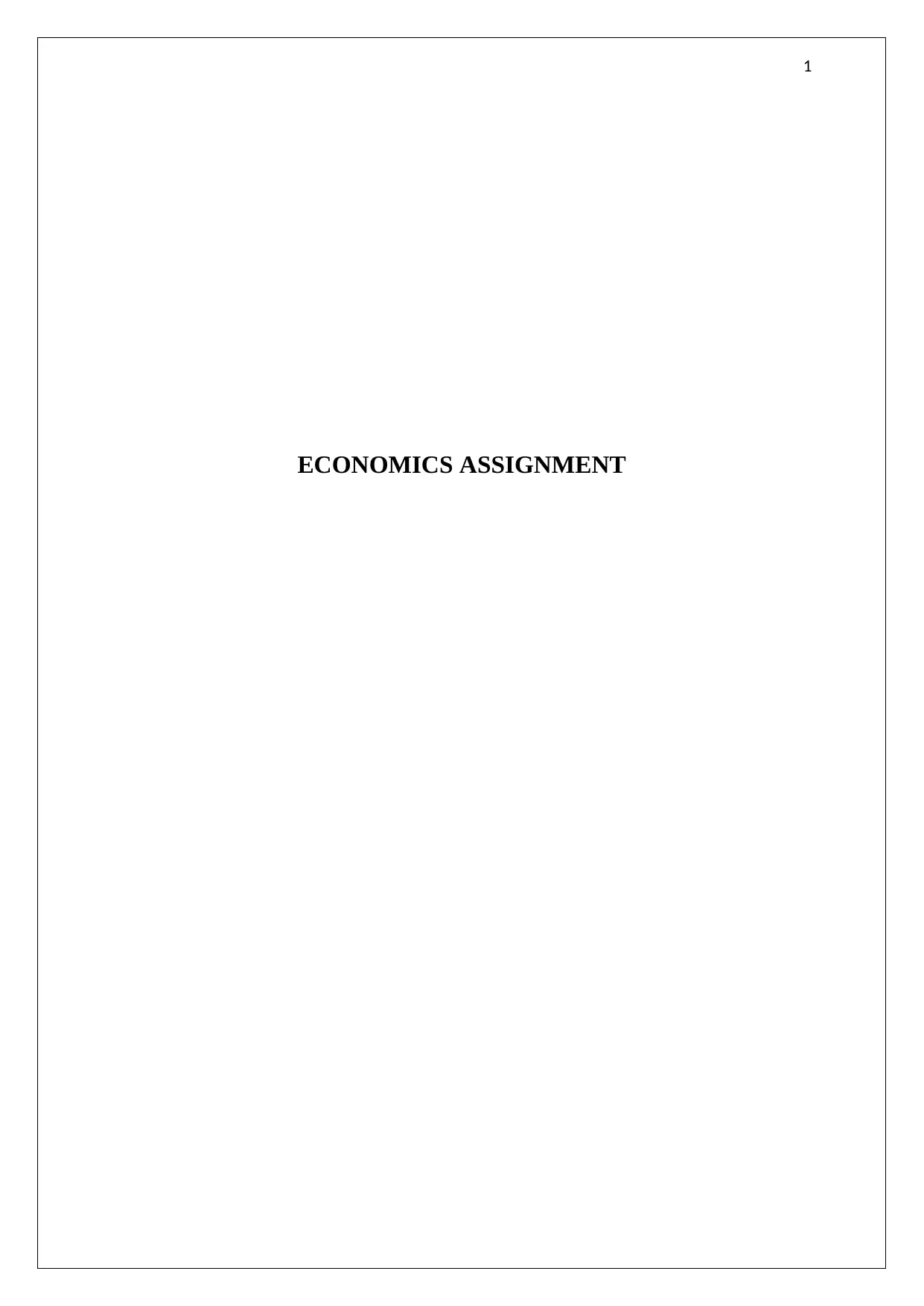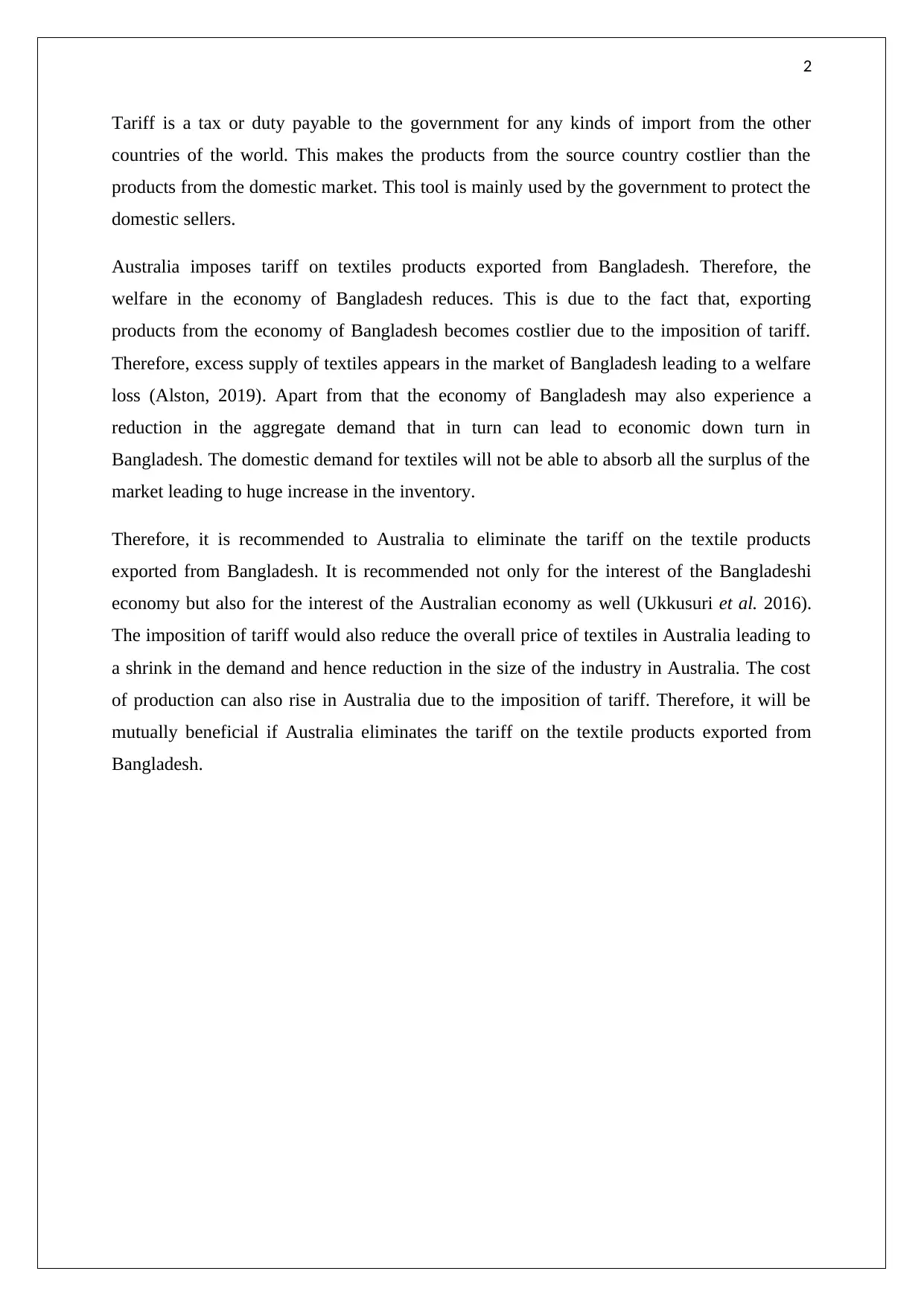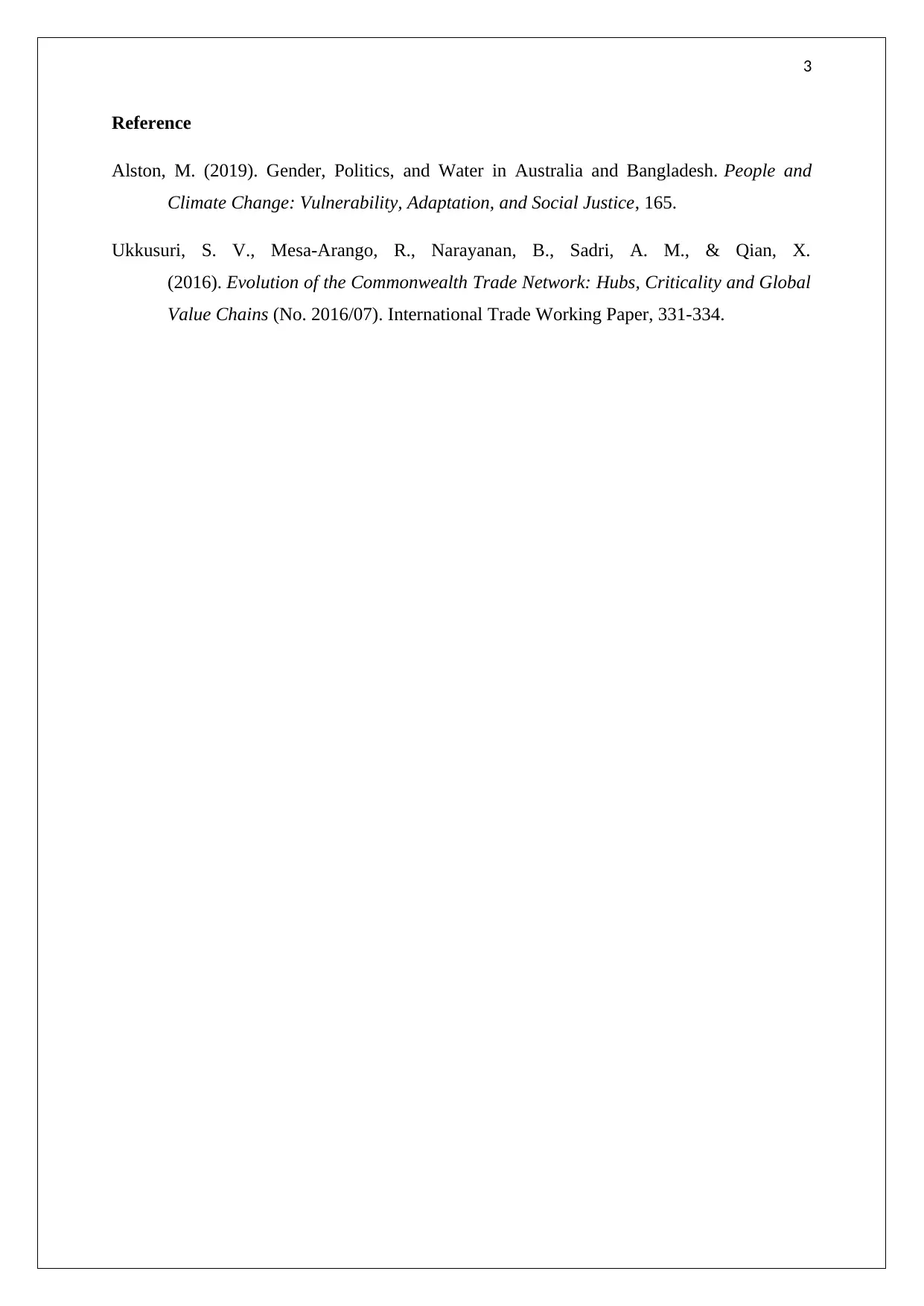Economics Assignment: Tariff Analysis and Bangladesh Trade Relations
VerifiedAdded on 2022/10/07
|3
|385
|18
Homework Assignment
AI Summary
This economics assignment analyzes the impact of tariffs, specifically focusing on the trade relationship between Australia and Bangladesh. The assignment highlights how tariffs imposed by Australia on textile products from Bangladesh increase costs, potentially leading to a reduction in Bangladesh's exports, a decrease in aggregate demand, and economic downturn. The assignment also discusses how tariffs can lead to excess supply in Bangladesh's market, resulting in welfare losses. The solution recommends that Australia eliminate tariffs to benefit both economies. It suggests that tariffs could also reduce the overall price of textiles in Australia and increase production costs. The assignment references relevant academic sources to support its arguments and conclusions, providing a comprehensive analysis of the economic effects of tariffs on international trade.
1 out of 3










![[object Object]](/_next/static/media/star-bottom.7253800d.svg)